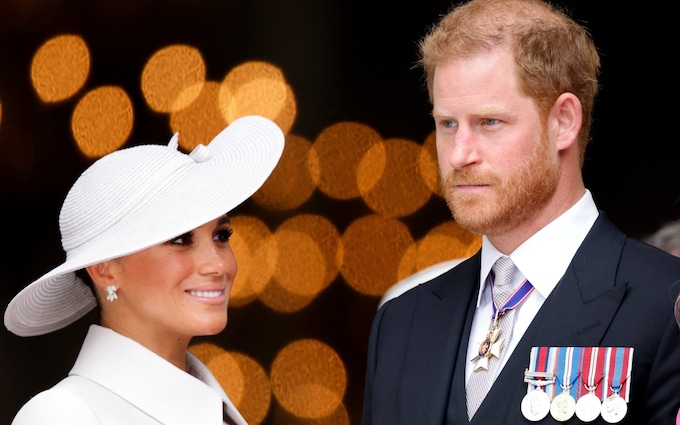Must Read
Prince Harry’s Absence from Invictus Games Sparks Controversy and Speculation
In a surprising turn of events, Prince Harry has opted not to return to England for the upcoming Invictus Games, prioritizing his safety amidst ongoing security concerns.
This decision raises questions about the 10th anniversary of the Games, which are set to unfold in London without the presence of their founder.
While the event is expected to proceed as planned, the absence of Harry, who typically plays a significant role, casts a shadow over the celebrations.
As the news unfolds, whispers have emerged suggesting that Harry's feelings of sorrow stem from his estrangement from the royal family, particularly following King Charles III's decision to evict him from Frogmore Cottage.
This emotional backdrop adds another layer to the narrative surrounding the Invictus Games, a multi-sport event established by Harry in 2014 to honor wounded veterans.
The Invictus Games, which will be hosted at St. Paul's Cathedral in May, had originally anticipated Harry's participation, including a keynote address alongside Meghan Markle.
However, concerns about security have prompted speculation about whether Harry will appear in person or opt for a virtual presence instead.
His reluctance to travel back to the UK raises eyebrows, particularly given his previous commitment to the event.
Security issues have been a constant theme in Harry's life since his relocation to the United States.
The Duke of Sussex has repeatedly voiced concerns about his safety, leading many to wonder if these fears are justified or simply an excuse to avoid public scrutiny.
After all, he has managed to navigate various global events with his security team intact, yet the prospect of returning to the UK seems to provoke heightened anxiety.
Some critics argue that Harry's apprehensions about attending the Invictus Games may stem from deeper psychological issues.
Is it possible that he feels more vulnerable in Britain, where his past and royal ties loom large?
The notion that Harry might struggle with mental health challenges adds complexity to the ongoing saga, one that has captivated both supporters and detractors alike.
In the midst of this turmoil, there are those who believe that Harry and Meghan have turned their absence into a narrative of victimhood.
The couple's tendency to portray themselves as under siege has led to speculation about their motives.
Are they genuinely concerned for their safety, or is this merely a strategic move to garner sympathy and maintain their public persona?
Adding fuel to the fire, Harry's visa situation complicates matters further.
Reports suggest that his A1 visa has been reclassified, necessitating reevaluation for future travel to the UK.
This bureaucratic hurdle could serve as yet another reason for Harry to avoid returning to his homeland, feeding into the narrative of a prince out of touch with his roots.
Meanwhile, the Invictus Games continue to stand as a testament to Harry's commitment to veterans, regardless of his personal struggles.
However, his physical absence raises questions about his dedication to the cause he championed.
Many wonder if the Games can thrive without their founder's direct involvement, or if Harry's detachment signals a shift in priorities.
As the date of the Games approaches, the royal family dynamics come into sharper focus.
Will William and Catherine attend, or will they choose to stay away to avoid overshadowing the event?
The potential for awkwardness looms large, especially with Harry's absence creating a rift that may affect familial relationships.
The emotional fallout from Harry's eviction from Frogmore Cottage cannot be overlooked.
Sources claim that he was visibly upset following the royal family's decision, highlighting the strain on his relationship with his father.
The implications of this eviction extend beyond mere property disputes; they reflect deeper issues within the royal family and Harry's struggle to find his place in a world that seems to have moved on without him.
Ultimately, as Prince Harry grapples with his identity and safety concerns, the Invictus Games serve as a backdrop for a larger narrative about belonging and legacy.
Will he reclaim his role as a champion for veterans, or will his fears and personal battles keep him sidelined?
As this story continues to unfold, the world watches closely, eager to see how the prince navigates these turbulent waters.








































